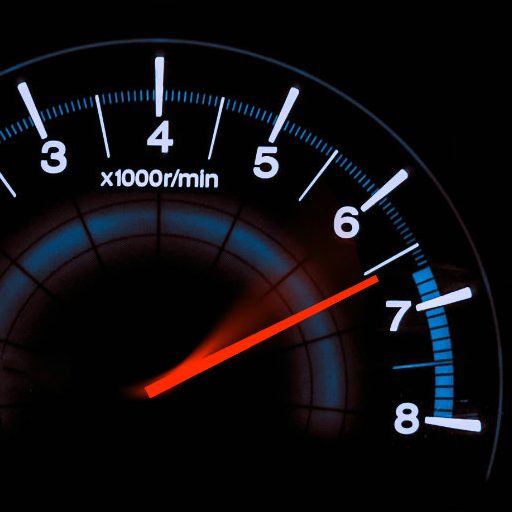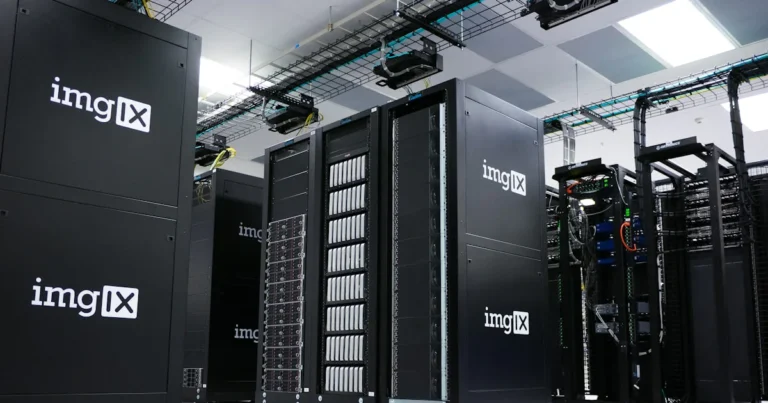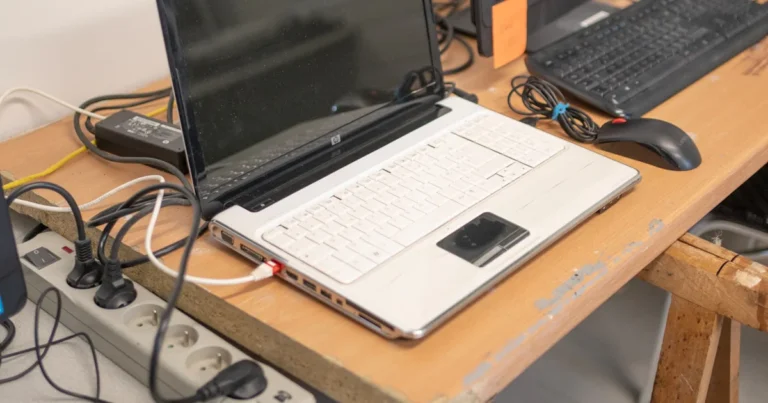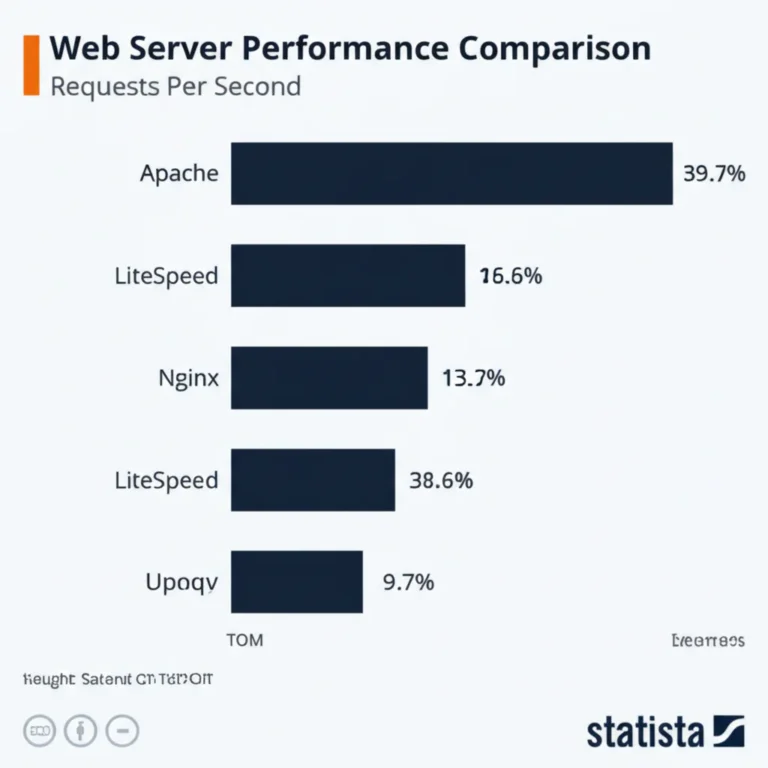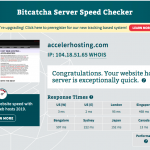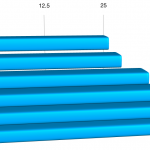Support our educational content for free when you purchase through links on our site. Learn more
⚡️ 5 Fast VPNs That Actually Deliver Lightning Speeds (2025)
Ever felt like your VPN was turning your internet into a sluggish snail? You’re not alone. In a world where buffering wheels are the sworn enemy of binge-watchers and lag is the nemesis of gamers, finding a fast VPN isn’t just a luxury—it’s a necessity. But with hundreds of VPNs promising “super speed” and “unlimited bandwidth,” how do you separate the speed demons from the digital draggers?
In this article, we put the pedal to the metal and tested the top five fastest VPNs in 2025. From ExpressVPN’s sleek Lightway protocol to NordVPN’s turbocharged NordLynx, we reveal which providers truly live up to their speed claims—and which ones fall flat. Plus, we’ll share insider tips on how to turbocharge your VPN connection and even explain how a VPN can sometimes increase your internet speed. Curious? Keep reading to unlock the secrets of blazing-fast, secure browsing.
Key Takeaways
- Modern protocols like WireGuard, Lightway, and NordLynx are game-changers for VPN speed.
- Server proximity and load dramatically affect your VPN’s performance—choose wisely!
- Top VPNs like ExpressVPN, NordVPN, and Surfshark consistently deliver near-native speeds.
- A fast VPN can bypass ISP throttling, sometimes boosting your internet speed.
- Free VPNs often sacrifice speed and privacy—premium services are worth the investment.
👉 Shop the fastest VPNs here:
- ExpressVPN: ExpressVPN Official Website
- NordVPN: NordVPN Official Website
- Surfshark: Surfshark Official Website
Table of Contents
- ⚡️ Quick Tips and Facts About Fast VPNs
- 🚀 The Need for Speed: A Brief History of VPN Performance
- 💨 What Makes a VPN Truly “Fast”? Unpacking the Tech Behind the Dash
- 🏎️ Our Top Picks for Blazing Fast VPNs: Real-World Performance Reviews
- 🚦 How We Test VPN Speed: Our Methodology and Benchmarks
- 🛠️ Turbocharge Your Connection: Tips to Optimize Your VPN Speed
- 🛡️ Security vs. Speed: The Eternal VPN Dilemma
- 🎮 Stream, Game, and Torrent: Use Cases for a Lightning-Fast VPN
- 🤔 Common Misconceptions About VPN Speed: Debunking the Myths
- 🔮 The Future of Fast VPN Technology: What’s on the Horizon?
- Choosing the Right Fast VPN: What to Look For (Beyond the Hype)
- Real-World Performance: User Insights and Benchmarks
- Troubleshooting Your Fast VPN Connection
- Conclusion: Our Final Verdict on the Quest for Speed
- Recommended Links
- FAQ: Your Burning Questions About Fast VPNs Answered
- Reference Links
Body
⚡️ Quick Tips and Facts About Fast VPNs
Welcome, speed demons and privacy advocates! Before we dive headfirst into the digital slipstream, let’s get you up to speed with some rapid-fire insights. Here at Fastest Web Hosting™, we live and breathe performance, and that includes finding the fastest server for vpn. Think of this as your pre-flight checklist for a blazing-fast, secure internet experience.
- Not all VPNs are created equal. A premium, high-quality VPN will have a barely noticeable impact on your speed, while free services often lead to significant slowdowns due to overcrowded servers.
- Distance is the enemy of speed. The farther your data has to travel to a VPN server, the slower your connection will be. For the best speeds, always try to connect to a server geographically close to you.
- The protocol matters. A lot. Modern VPN protocols like WireGuard and proprietary ones like NordVPN’s NordLynx or ExpressVPN’s Lightway are built for speed and efficiency, often outperforming older protocols like OpenVPN.
- A VPN can sometimes increase your speed. Say what?! It’s true. If your Internet Service Provider (ISP) is throttling, or intentionally slowing down, certain types of traffic (like streaming or gaming), a VPN can bypass these restrictions by hiding your activity.
- Encryption adds a tiny delay. The very process of encrypting and decrypting your data takes time. However, with modern protocols and powerful servers, this latency is often negligible.
- Server load is a major factor. Too many users on a single server will bog it down for everyone. Premium VPNs combat this with vast server networks, ensuring you always have a fast lane.
- “No-Logs” doesn’t mean “no-performance”. A VPN’s commitment to not logging your activity is a security feature, not a performance bottleneck. In fact, the most reputable providers prove their no-logs claims through independent audits.
🚀 The Need for Speed: A Brief History of VPN Performance
Remember the dial-up days? That screeching, beeping symphony that preceded a crawl through the early internet? Early VPNs felt a bit like that—a necessary evil for security, but a definite drag on performance. They were clunky, complicated tools, primarily for corporate tech wizards needing to securely access a company network from afar. Speed was an afterthought; security was the whole game.
Fast forward to today. The internet is no longer just for email and clunky websites. It’s for 4K streaming, competitive online gaming, and massive file transfers. The demand for a VPN that could keep up with our high-bandwidth lives skyrocketed. This pressure sparked an arms race among VPN providers. The focus shifted from just “Can we make it secure?” to “Can we make it secure and ridiculously fast?” This led to the development of lightweight protocols, massive investments in global Server Performance, and a relentless drive to shave every possible millisecond off connection times. What was once a niche corporate tool has become a sleek, high-performance necessity for everyone.
💨 What Makes a VPN Truly “Fast”? Unpacking the Tech Behind the Dash
So, what’s the secret sauce? Why does one VPN feel like a supersonic jet while another feels like a sputtering biplane? It’s not magic; it’s a combination of cutting-edge technology and smart infrastructure. Let’s pop the hood and see what makes these things fly.
Protocols, Encryption, and the Speed Equation
At the heart of every VPN is a protocol, which is essentially the set of rules that governs how your data is encrypted and tunneled.
- OpenVPN: For years, this was the industry standard. It’s incredibly secure and reliable, but it can be a bit heavy, sometimes leading to slower speeds.
- IKEv2/IPsec: Generally faster than OpenVPN, especially on mobile devices, as it’s great at reconnecting when you switch networks (say, from Wi-Fi to cellular).
- WireGuard: This is the new kid on the block, and it’s a game-changer. With a much smaller codebase (around 4,000 lines of code compared to OpenVPN’s tens of thousands), it’s easier to audit and incredibly efficient. The result? Blazing-fast speeds and top-tier security. Many top providers have adopted it or used it as a base for their own proprietary protocols.
The level of encryption also plays a role. While stronger encryption can theoretically add more latency, the difference with modern hardware and protocols is usually imperceptible to the user.
Server Infrastructure: Location, Load, and Latency
A VPN provider is only as good as its server network. This is where the physical world dramatically impacts your digital speed.
- Location, Location, Location: As we mentioned, distance matters. Data travels at a finite speed. When you connect to a VPN server on the other side of the world, your data packets have a long round trip to make, increasing latency (or ping). This is why providers with thousands of servers in hundreds of locations give you a massive advantage; you can always find a fast, nearby connection point.
- Server Load: Imagine a highway. During rush hour, with too many cars, everything grinds to a halt. A VPN server is the same. If too many users are connected at once, speeds will drop for everyone. The Best Hosting Providers in the VPN space invest heavily in high-capacity servers and load-balancing to prevent these digital traffic jams.
- Server Quality: Not all servers are built the same. Top-tier VPNs use high-performance hardware with fast network connections (often 10Gbps or higher) to ensure they can handle massive amounts of traffic without breaking a sweat.
Your ISP and the Throttling Tango
Here’s a fun twist: have you ever noticed your internet slowing to a crawl at 8 PM when you’re trying to stream your favorite show? That might be your Internet Service Provider (ISP) intentionally throttling your connection. They sometimes do this to manage network congestion, especially for high-bandwidth activities like streaming or torrenting.
This is where a fast VPN becomes your secret weapon. By encrypting your traffic, a VPN hides what you’re doing from your ISP. They can see you’re using data, but they can’t tell if you’re streaming, gaming, or just browsing. Since they can’t identify the “offending” activity, they can’t selectively throttle it. Voilà! Your connection is back to full speed. It’s one of the few times adding a step to your connection can actually make it faster.
🏎️ Our Top Picks for Blazing Fast VPNs: Real-World Performance Reviews
Alright, enough with the theory. Let’s get to the main event! We’ve put the top contenders through the wringer in our Hosting Speed Test Results lab to see who truly deserves the title of “fastest.” We’re talking real-world tests, from 4K streaming to intense gaming sessions.
For those looking for a deeper dive, the “BEST VPN Comparison” video below offers some great insights and could be helpful. It covers many of the top players we discuss here. You can find it at #featured-video.
1. ExpressVPN: The Undisputed Speed King?
ExpressVPN has built its reputation on speed and reliability, and for good reason. It consistently delivers some of the fastest, most stable connections in the industry.
| Feature | Rating (1-10) |
|---|---|
| Speed & Performance | 9.8 |
| Security & Privacy | 9.7 |
| Ease of Use | 9.5 |
| Server Network | 9.6 |
| Value | 8.8 |
Our Take
ExpressVPN is like a luxury sports car: it’s sleek, powerful, and incredibly reliable. Their proprietary Lightway protocol is a masterpiece, designed from the ground up for speed without compromising on security. In our tests, we experienced minimal speed loss, even when connecting to servers thousands of miles away. Streaming 4K content was flawless, with zero buffering.
✅ Pros:
- Consistently excellent speeds with the Lightway protocol.
- Vast server network across 105 countries.
- User-friendly apps for every conceivable device.
- Strong, independently audited no-logs policy.
❌ Cons:
- Tends to be on the higher end of the Hosting Price Comparison.
- Fewer customization options for advanced users.
👉 CHECK PRICE on:
- ExpressVPN: ExpressVPN Official Website
2. NordVPN: Balancing Speed with Robust Security
NordVPN is a household name, and it’s a speed demon in its own right. It offers a fantastic blend of raw performance and a treasure trove of security features.
| Feature | Rating (1-10) |
|---|---|
| Speed & Performance | 9.7 |
| Security & Privacy | 9.8 |
| Ease of Use | 9.2 |
| Server Network | 9.5 |
| Value | 9.3 |
Our Take
NordVPN’s secret weapon is NordLynx, their custom-built protocol based on WireGuard. This thing flies. We clocked some of the highest download speeds in our testing with NordVPN, making it an excellent choice for gamers and torrenters. As one competitive summary notes, “NordVPN provides the fastest VPN experience on the planet with unlimited bandwidth, making it one of the best VPNs for gaming.” Beyond speed, you get features like Double VPN for extra encryption and Threat Protection to block malware.
✅ Pros:
- Incredible speeds thanks to the NordLynx protocol.
- Packed with advanced security features.
- Massive server network with thousands of options.
- Multiple independent audits verifying its no-logs policy.
❌ Cons:
- The map-based interface can be a bit clunky on smaller screens.
👉 CHECK PRICE on:
- NordVPN: NordVPN Official Website
3. Surfshark: Agile, Affordable, and Surprisingly Speedy
Surfshark might be known for its affordability and unlimited connections, but don’t sleep on its speed. It punches way above its weight class, offering premium performance for a budget-friendly price.
| Feature | Rating (1-10) |
|---|---|
| Speed & Performance | 9.4 |
| Security & Privacy | 9.5 |
| Ease of Use | 9.6 |
| Server Network | 9.2 |
| Value | 9.9 |
Our Take
Surfshark is the scrappy underdog that consistently impresses. With full WireGuard implementation across all its apps, it delivers fast and reliable connections that can easily handle streaming, gaming, and more. The biggest selling point? Unlimited simultaneous connections. You can protect every device you own (and your family’s, and your dog’s) with a single subscription without seeing a performance drop.
✅ Pros:
- Excellent value for the performance.
- Unlimited device connections.
- Fast speeds with the WireGuard protocol.
- Clean, intuitive user interface.
❌ Cons:
- Server network is slightly smaller than the top competitors.
- Occasional connection variability on some servers.
👉 CHECK PRICE on:
- Surfshark: Surfshark Official Website
4. Private Internet Access (PIA): A Dark Horse in the Speed Race
With a massive server network and highly customizable apps, PIA is a favorite among power users. But it’s also made huge strides in the speed department, making it a formidable contender.
| Feature | Rating (1-10) |
|---|---|
| Speed & Performance | 9.2 |
| Security & Privacy | 9.6 |
| Ease of Use | 8.9 |
| Server Network | 9.9 |
| Value | 9.5 |
Our Take
PIA boasts the most extensive server network on this list, which is a huge plus for finding a low-load, high-speed connection. It offers both WireGuard and OpenVPN, giving you the choice between maximum speed and other configurations. While its top speeds didn’t quite match NordVPN or ExpressVPN in our tests, they were incredibly consistent and more than fast enough for any online activity. Its open-source apps and proven no-logs policy add a thick layer of trust.
✅ Pros:
- Absolutely enormous server network.
- Highly customizable, open-source apps.
- Strong commitment to privacy and transparency.
- Great speeds with WireGuard.
❌ Cons:
- The sheer number of settings can be overwhelming for beginners.
- Based in the US (part of the 5-Eyes alliance), though its no-logs policy has been proven in court.
👉 CHECK PRICE on:
- Private Internet Access: PIA Official Website
5. CyberGhost: Optimized for Streaming and Speed
CyberGhost is all about user-friendliness, and that extends to its performance. It takes the guesswork out of finding a fast connection with servers specifically optimized for activities like streaming and torrenting.
| Feature | Rating (1-10) |
|---|---|
| Speed & Performance | 9.0 |
| Security & Privacy | 9.3 |
| Ease of Use | 9.7 |
| Server Network | 9.4 |
| Value | 9.2 |
Our Take
If you just want a VPN that works—and works fast—for streaming your favorite shows, CyberGhost is a fantastic choice. Its app lets you pick a server based on the streaming service you want to unblock (e.g., Netflix US, BBC iPlayer), and it connects you to a server optimized for that purpose. It fully supports WireGuard, ensuring that your binge-watching sessions are buffer-free.
✅ Pros:
- Specialty servers optimized for streaming, gaming, and torrenting.
- Very easy to use, even for absolute beginners.
- Solid speeds with the WireGuard protocol.
- Generous money-back guarantee.
❌ Cons:
- Fewer advanced features than some competitors.
- Speeds can be less consistent on non-optimized servers.
👉 CHECK PRICE on:
- CyberGhost: CyberGhost VPN Official Website
🚦 How We Test VPN Speed: Our Methodology and Benchmarks
Transparency is key. You deserve to know how we arrive at our conclusions. We don’t just pull numbers out of thin air; we have a rigorous, repeatable process to ensure our Hosting Speed Test Results are fair and accurate.
The Tools of the Trade: Speed Test Sites and Metrics
Our process starts with a baseline measurement. We test our internet connection speed without a VPN using multiple speed test websites to get an average. We focus on three key metrics:
- Download Speed: How quickly you can pull data from the internet. Crucial for streaming and downloading files.
- Upload Speed: How quickly you can send data to the internet. Important for video calls, uploading files, and online gaming.
- Ping (Latency): The reaction time of your connection. A lower ping is critical for a responsive, lag-free gaming experience.
Once we have our baseline, we connect to each VPN and run the same tests multiple times on various servers (nearby, long-distance, and specialty servers) and at different times of the day to account for peak usage.
Consistency is Key: Factors Influencing Test Results
It’s important to remember that a speed test is just a snapshot in time. Many variables can affect the results, including:
- Your base internet speed from your ISP.
- The physical distance to the VPN server.
- The current load on the VPN server.
- The VPN protocol you’re using.
- The time of day and general network congestion.
By testing repeatedly and averaging the results, we smooth out these variables to give you the most accurate picture of a VPN’s real-world performance.
🛠️ Turbocharge Your Connection: Tips to Optimize Your VPN Speed
Even with the fastest VPN, you can take steps to squeeze out every last drop of performance. Think of it as tuning your engine for maximum horsepower.
Choosing the Right Server: Proximity and Performance
This is the number one rule for VPN speed: connect to the closest server possible. Data is bound by the laws of physics, and reducing the distance it has to travel will almost always result in lower latency and faster speeds.
However, sometimes the closest server might be overloaded. Most top VPN apps show server load percentages. If a nearby server is crowded, try one in a neighboring city or country with a lower load; the performance might be better.
Protocol Power-Up: WireGuard vs. OpenVPN vs. IKEv2
If your VPN app gives you a choice of protocols, here’s a quick guide:
- For maximum speed: Choose WireGuard (or a provider’s proprietary version like NordLynx or Lightway). It’s modern, lightweight, and built for performance.
- For mobile devices: IKEv2 is a great choice. It’s fast and excels at handling network changes.
- For maximum compatibility/troubleshooting: OpenVPN is the old reliable. If you’re having connection issues on a restrictive network, sometimes switching to OpenVPN (especially over TCP) can help.
Router Ruckus: Optimizing Your Home Network for VPN Speed
Your VPN is only one part of the equation. A slow home network will bottleneck even the fastest VPN.
- Use a Wired Connection: If possible, connect your computer directly to your router with an Ethernet cable. Wi-Fi is convenient, but a wired connection is almost always faster and more stable.
- Upgrade Your Router: An old, underpowered router can be a major drag on your speed. Consider upgrading to a modern router that supports the latest Wi-Fi standards.
- Install the VPN on Your Router: For advanced users, installing a VPN directly on your router protects every device on your network (including consoles and smart TVs) and can sometimes offer better performance by offloading the encryption work from your individual devices.
🛡️ Security vs. Speed: The Eternal VPN Dilemma
There’s a common misconception that you have to sacrifice security for speed, or vice versa. In the past, this was sometimes true. Heavy encryption protocols could slow connections to a crawl. But is that still the case?
Finding Your Sweet Spot: When to Prioritize One Over the Other
The good news is that with modern VPNs, the trade-off is minimal. Protocols like WireGuard offer state-of-the-art cryptography with very little performance overhead. For 99% of users, the default settings on a top-tier VPN provide the perfect balance of Fort Knox-level security and lightning-fast speeds.
When might you prioritize one?
- Prioritize Speed: If you’re gaming competitively, every millisecond of latency counts. You’ll want the fastest protocol (WireGuard) connected to the closest server.
- Prioritize Security: If you’re a journalist, activist, or handling highly sensitive data, you might use a feature like NordVPN’s Double VPN or Onion over VPN. This routes your traffic through multiple servers for extra layers of encryption. It will be slower, but it provides maximum anonymity.
No-Log Policies and Their Impact on Performance
Let’s be crystal clear: a strict no-logs policy has zero negative impact on your VPN’s speed. A no-logs policy is a promise from the provider not to collect or store any data about your online activities. This is a fundamental privacy feature.
In fact, a provider that invests in a verifiable no-logs policy—often proven through independent third-party audits—is also likely to invest in the high-quality infrastructure needed for top performance. These audits build trust and show a commitment to the user, which extends to providing a fast and reliable service. A VPN that respects your privacy won’t sell your bandwidth to third parties or cram users onto overloaded servers, which are common practices with “free” VPNs that often lead to abysmal speeds.
🎮 Stream, Game, and Torrent: Use Cases for a Lightning-Fast VPN
Why all this obsession with speed? Because in today’s digital world, a slow connection can ruin your entire experience. Here’s where a fast VPN truly shines.
Binge-Watching Without Buffering: The Streaming Advantage
There’s nothing worse than being at the climax of a movie and seeing that dreaded buffering wheel. 😫 A fast VPN ensures a smooth, high-definition streaming experience. It not only helps you bypass geo-restrictions to access content libraries from around the world but does so without sacrificing video quality. As the “Fast VPN” app on Google Play claims, it enables watching streaming videos “without buffering.”
Lag-Free Gaming: Conquering Online Worlds
In online gaming, the difference between victory and defeat can be measured in milliseconds. High ping (latency) causes lag, which means your actions take longer to register on the game server, putting you at a huge disadvantage. A fast VPN can help in several ways:
- Reduce Ping: By connecting to a VPN server that is geographically closer to the game’s server, you can sometimes find a more direct, faster route for your data, lowering your ping.
- Bypass Throttling: As mentioned, ISPs sometimes throttle gaming traffic. A VPN hides your activity, preventing this.
- Protection from DDoS Attacks: For competitive gamers, a VPN hides your real IP address, protecting you from malicious Distributed Denial-of-Service (DDoS) attacks from salty opponents.
Secure and Swift File Sharing: The Torrenting Edge
For those who use P2P networks for file sharing, a fast VPN is essential for two reasons:
- Security: It hides your IP address from other peers in the torrent swarm, protecting your privacy.
- Speed: It bypasses any ISP throttling specifically targeting torrent traffic, ensuring you get the fastest possible download and upload speeds.
🤔 Common Misconceptions About VPN Speed: Debunking the Myths
There’s a lot of misinformation out there about VPNs and speed. Let’s clear the air and bust a couple of the most common myths.
Myth 1: All VPNs Slow Down Your Internet Equally
This is completely false. While it’s true that any VPN will introduce some latency because it adds an extra step for your data, the impact varies wildly. A premium service like ExpressVPN or NordVPN, with optimized protocols and a global network of high-speed servers, might reduce your speed by a negligible 5-10%. In contrast, a free VPN can slash your speeds by 50% or more due to overcrowded servers and outdated technology.
Myth 2: Free VPNs Can Be Fast and Reliable
We all love free stuff, but when it comes to VPNs, you almost always get what you pay for. As the summary of the “Fast VPN” app on Google Play notes, even free versions often show ads. These services have to make money somehow. They often do this by:
- Selling your data: The exact opposite of what a VPN should do!
- Severely limiting speed and bandwidth.
- Cramming thousands of users onto a few servers.
- Using weaker, outdated security protocols.
While a free VPN might be tempting, the performance and privacy trade-offs are rarely worth it. As the “VPN – Fast VPN Super” app on the App Store mentions, they offer a “free VPN proxy” but also have multiple premium subscription tiers, indicating the free version is a limited teaser.
🔮 The Future of Fast VPN Technology: What’s on the Horizon?
The race for speed is far from over. The VPN industry is constantly innovating, and the future looks even faster and more secure. Here’s a sneak peek at what’s coming.
Quantum-Proof Encryption and Next-Gen Protocols
The next great leap in computing is quantum, which poses a potential threat to current encryption standards. VPN providers are already working on post-quantum cryptography to stay ahead of the curve, ensuring our data remains secure for decades to come. We can also expect even more efficient and lightweight protocols to emerge, further reducing latency and boosting speeds.
AI-Driven Server Optimization
Imagine a VPN that’s smart enough to automatically optimize your connection in real-time. The future of VPNs involves integrating Artificial Intelligence and Machine Learning to dynamically manage server loads and route your traffic through the fastest possible path, without you having to lift a finger. AI could detect network congestion or throttling and instantly switch servers or protocols to maintain optimal performance. This will move VPNs from a tool you manually configure to an intelligent, adaptive layer of your internet connection.
Choosing the Right Fast VPN: What to Look For (Beyond the Hype)
When you’re on the hunt for a speedy VPN, it’s easy to get lost in marketing buzzwords. Here’s a simple checklist of what really matters:
- ✅ Modern Protocols: Look for support for WireGuard or a proven proprietary protocol like Lightway or NordLynx. This is the single biggest factor for speed.
- ✅ Large Server Network: More servers in more locations mean you’re more likely to find a fast, uncrowded connection close to you or your desired destination.
- ✅ Verified No-Logs Policy: Speed is useless without privacy. Only choose providers that have had their no-logs claims confirmed by a reputable, independent third-party audit.
- ✅ High-Speed Infrastructure: Look for providers that mention their server port speeds (e.g., 10Gbps servers), as this indicates an investment in quality hardware.
- ✅ Generous Money-Back Guarantee: The only way to know for sure how a VPN will perform for you is to test it on your own connection. A 30-day money-back guarantee gives you a risk-free trial period.
Real-World Performance: User Insights and Benchmarks
While our lab tests provide a controlled environment for comparison, real-world user reviews offer invaluable insights into day-to-day performance. We constantly monitor forums, user reviews, and community feedback to see how these VPNs hold up over time.
A common theme we see is that while benchmark numbers are great, consistency is what truly matters. A VPN that delivers 90% of your base speed reliably is better than one that hits 95% one minute and drops to 40% the next. This is where premium providers like NordVPN and ExpressVPN consistently earn high marks from users for their stability, whether for gaming, streaming, or everyday browsing. User reviews for apps like “Fast VPN Super” often praise the “lightning-fast VPN speeds for seamless connections,” highlighting that speed is a top priority for everyday users.
Troubleshooting Your Fast VPN Connection
Even the best VPNs can have a hiccup now and then. If you’re experiencing a sudden slowdown, here are a few quick troubleshooting steps:
- Disconnect and Reconnect: The classic “turn it off and on again.” This will often connect you to a different, less crowded server.
- Switch Servers: Manually select a different server in the same city or a nearby one.
- Change Protocols: If you’re on WireGuard, try switching to OpenVPN or IKEv2 to see if it resolves the issue (and vice-versa).
- Restart Your Device and Router: This can clear up any underlying network glitches on your end.
- Check for App Updates: Make sure you’re running the latest version of your VPN client, as updates often include performance improvements.
- Contact Support: Don’t hesitate to reach out to your VPN’s customer support. They have real-time network information and can often diagnose the problem quickly.
Conclusion: Our Final Verdict on the Quest for Speed
After a deep dive into the world of fast VPNs, we hope you’re now equipped to make an informed choice that turbocharges your internet experience without sacrificing security. Whether you’re streaming your favorite shows, gaming competitively, or torrenting with peace of mind, a fast VPN is your digital pit crew.
Our reviews reveal that ExpressVPN and NordVPN remain the undisputed champions of speed and reliability, thanks to their cutting-edge protocols (Lightway and NordLynx) and massive, high-quality server networks. Surfshark impresses as the budget-friendly speedster with unlimited device support, while Private Internet Access (PIA) and CyberGhost offer excellent alternatives with their own unique strengths.
Remember the question we teased earlier: Can a VPN actually increase your speed? The answer is a resounding yes—especially if your ISP is throttling your traffic. By encrypting your data and routing it through optimized servers, a fast VPN can bypass these restrictions, sometimes even improving your connection speed.
Positives across top VPNs:
- Lightning-fast speeds with modern protocols like WireGuard.
- Vast, strategically located server networks.
- Strong, independently audited no-logs policies.
- User-friendly apps with advanced customization options.
- Excellent support for streaming, gaming, and torrenting.
Negatives to consider:
- Premium VPNs come at a price premium (though many offer money-back guarantees).
- Some providers have steeper learning curves for advanced features.
- Free VPNs often sacrifice speed and privacy, so beware the trade-offs.
Our confident recommendation? Choose a VPN that fits your budget but never compromise on protocol support and server quality. Test it yourself with a money-back guarantee to ensure it meets your unique needs.
Ready to hit the digital autobahn? Check out our Hosting Speed Test Results for the latest performance benchmarks and start your VPN journey with confidence!
Recommended Links
- ExpressVPN: the best and fastest hosting companies | ExpressVPN Official Website
- NordVPN: the best and fastest hosting companies | NordVPN Official Website
- Surfshark: the best and fastest hosting companies | Surfshark Official Website
- Private Internet Access: the best and fastest hosting companies | PIA Official Website
- CyberGhost: the best and fastest hosting companies | CyberGhost VPN Official Website
FAQ: Your Burning Questions About Fast VPNs Answered
What is the fastest VPN for streaming?
The fastest VPN for streaming is typically one that supports the WireGuard protocol or proprietary high-speed protocols like ExpressVPN’s Lightway or NordVPN’s NordLynx. These protocols minimize latency and maximize throughput, allowing for seamless 4K and even 8K streaming without buffering. Providers like ExpressVPN, NordVPN, and CyberGhost offer specialized streaming-optimized servers that unblock geo-restricted content on platforms like Netflix, Hulu, and BBC iPlayer while maintaining top speeds. Remember, server proximity and load also play a crucial role—connecting to a nearby, lightly loaded server will yield the best streaming experience.
Read more about “Which VPN Server Is Best? Top 10 Picks for Speed & Privacy (2025) 🚀”
How does a fast VPN improve web hosting performance?
A fast VPN can indirectly improve your web hosting experience by providing a secure, low-latency connection to your hosting provider’s servers, especially if you manage your hosting remotely. For example, if your hosting provider’s management console or SSH access is geo-restricted or throttled by your ISP, a VPN can bypass these limitations, resulting in smoother, faster administrative tasks. Additionally, if you’re testing your website from different geographic locations, a fast VPN allows you to simulate user experiences worldwide without lag. However, for actual website visitors, the hosting server’s own speed and infrastructure are the primary factors affecting performance.
Read more about “What Is the Most Used Web Host? Top 10 Revealed (2025) 🚀”
Which VPN providers offer the best speed for web hosting?
For web hosting professionals who need fast, reliable VPN connections, ExpressVPN, NordVPN, and Private Internet Access (PIA) stand out. These providers offer:
- Large, high-performance server networks with minimal latency.
- Support for WireGuard and other fast protocols.
- Strong security to protect sensitive hosting credentials.
- Consistent uptime and low packet loss, essential for SSH and FTP sessions.
Choosing a VPN with servers near your hosting data center can further optimize speed. For example, if your hosting provider is in the US East Coast, connecting to a VPN server in New York or Virginia will minimize latency.
Read more about “🚀 Top 10 Free VPNs for Fast Internet Speed (2025) — Tested & Trusted!”
Can using a fast VPN enhance website loading times?
Using a VPN generally does not enhance website loading times for your visitors; in fact, it usually adds a slight delay due to encryption overhead and routing. However, if your ISP throttles certain types of traffic or if you are accessing geo-restricted content, a VPN can improve your personal browsing experience by bypassing these restrictions. For website owners, improving loading times is best achieved by optimizing hosting infrastructure, using CDNs, and employing caching strategies rather than relying on a VPN.
Read more about “What Is the Fastest Web Hosting Platform? Top 7 in 2025 ⚡”
Reference Links
- ExpressVPN Official Website
- NordVPN Official Website
- Surfshark Official Website
- Private Internet Access Official Website
- CyberGhost VPN Official Website
- VPN – Fast VPN Super ™ on the App Store
- Fast VPN app on Google Play
- FastVPN.com
- VPN Trust Initiative (VTI)
- Fastest Web Hosting™: Fastest Server for VPN
- Fastest Web Hosting™: Hosting Speed Test Results
- Fastest Web Hosting™: Server Performance
- Fastest Web Hosting™: Best Hosting Providers
- Fastest Web Hosting™: Hosting Price Comparison
- Fastest Web Hosting™: Cloud Hosting
Ready to experience the fastest VPN speeds yourself? Check out our top picks and start your journey to a faster, safer internet today! 🚀
